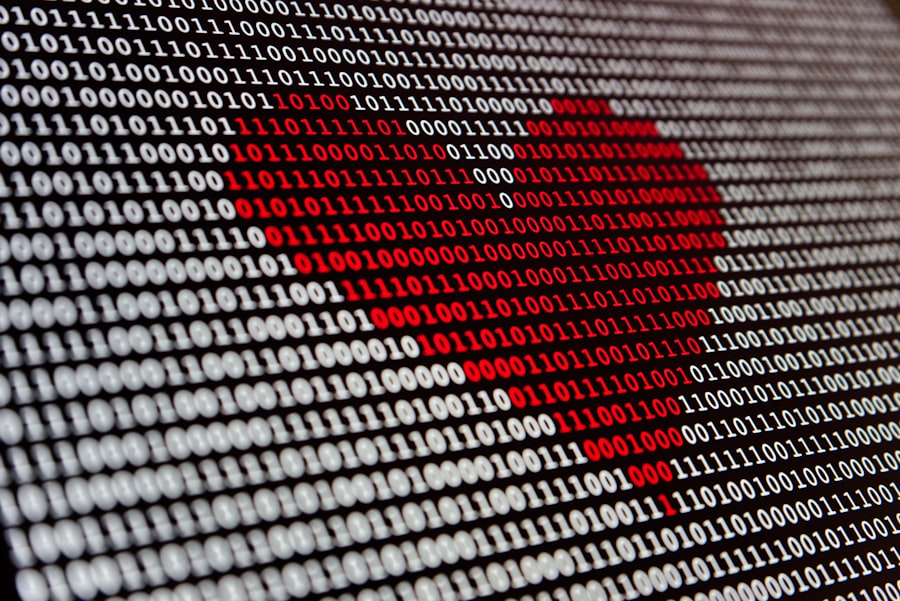In the rapidly evolving landscape of blockchain technology, oracles have emerged as a critical component that bridges the gap between the decentralized world of blockchain and the external data sources that are essential for executing smart contracts. At its core, an oracle is a third-party service that provides real-world data to blockchain applications, enabling them to interact with information outside their native environment. This functionality is vital because blockchains, by design, are isolated ecosystems that cannot access external data directly.
Without oracles, smart contracts would be limited to executing transactions based solely on the information available within the blockchain itself, significantly curtailing their potential applications. The significance of oracles extends beyond mere data provision; they play a pivotal role in enhancing the functionality and versatility of smart contracts. For instance, consider a decentralized finance (DeFi) application that requires real-time price feeds for various cryptocurrencies to facilitate trading or lending.
In such scenarios, oracles serve as the conduit through which accurate and timely data is relayed to the smart contract, allowing it to execute transactions based on current market conditions. This capability not only broadens the scope of what smart contracts can achieve but also fosters trust and reliability in decentralized applications, which are increasingly being adopted across various industries.
Key Takeaways
- Oracles play a crucial role in connecting external data to smart contracts in blockchain technology.
- Smart contracts require reliable and accurate external data to execute their functions effectively.
- There are different types of oracles in blockchain technology, including software oracles, hardware oracles, and consensus-based oracles.
- Oracles connect data to smart contracts through various methods such as API calls, data feeds, and consensus mechanisms.
- Reliable data feeds are essential for the successful execution of smart contracts, as they ensure the accuracy and integrity of the data being used.
Understanding the Need for Oracles in Smart Contracts
The necessity for oracles in smart contracts arises from the inherent limitations of blockchain technology. Smart contracts are self-executing contracts with the terms of the agreement directly written into code. While they offer unparalleled security and automation, their functionality is constrained by their inability to access external data.
This limitation poses a significant challenge for applications that require real-time information, such as insurance claims processing, supply chain management, and financial services. Without oracles, these applications would be unable to function effectively, as they would lack the necessary data inputs to trigger contract execution. Moreover, the reliance on oracles introduces a layer of complexity in the design and implementation of smart contracts.
Developers must carefully select oracles that provide accurate and reliable data to ensure that the smart contracts operate as intended. For example, in a decentralized insurance application that pays out claims based on weather conditions, an oracle must provide precise meteorological data to determine whether a claim is valid. If the oracle fails to deliver accurate information, it could lead to incorrect payouts or disputes between parties.
Thus, understanding the need for oracles is crucial for developers and stakeholders who wish to harness the full potential of smart contracts in real-world applications.
Types of Oracles in Blockchain Technology

Oracles can be categorized into several types based on their functionality and the nature of the data they provide. The most common classifications include centralized oracles, decentralized oracles, software oracles, hardware oracles, and inbound and outbound oracles. Centralized oracles are operated by a single entity that provides data to the blockchain.
While they can offer quick and efficient data feeds, they also introduce a single point of failure and potential trust issues, as users must rely on the integrity of the oracle provider. In contrast, decentralized oracles aggregate data from multiple sources to ensure accuracy and reliability. By utilizing a network of independent nodes to verify information before it is relayed to the smart contract, decentralized oracles mitigate the risks associated with relying on a single source.
This approach enhances trust among users and reduces the likelihood of manipulation or errors in data reporting. Examples of decentralized oracle networks include Chainlink and Band Protocol, which have gained traction for their robust frameworks that facilitate secure data transmission. Software oracles are designed to fetch data from online sources such as APIs, while hardware oracles connect physical devices to blockchains.
For instance, a hardware oracle might be used in supply chain management to track the temperature of perishable goods during transit. Inbound oracles bring external data into the blockchain ecosystem, whereas outbound oracles send data from the blockchain to external systems. Each type of oracle serves a unique purpose and is tailored to meet specific requirements within various applications.
How Oracles Connect Data to Smart Contracts
The process by which oracles connect external data to smart contracts involves several steps that ensure accuracy and reliability throughout the data transmission process. Initially, an oracle retrieves data from an external source—this could be anything from financial market prices to weather conditions—using APIs or other means of data collection. Once the data is acquired, it undergoes verification processes to ensure its authenticity and accuracy before being transmitted to the blockchain.
After verification, the oracle sends the validated data to a specific smart contract on the blockchain. This interaction typically occurs through a transaction that includes relevant information such as timestamps and cryptographic signatures to ensure data integrity. The smart contract then processes this information according to its programmed logic, executing actions based on predefined conditions.
For example, if a smart contract governing a decentralized lending platform receives updated interest rates from an oracle, it can automatically adjust loan terms for borrowers based on this new information. The seamless integration of oracles into smart contracts not only enhances their functionality but also allows for dynamic interactions with real-world events. This capability is particularly valuable in industries where timely information is crucial for decision-making processes.
By enabling smart contracts to respond to real-time data inputs, oracles significantly expand their applicability across various sectors, including finance, insurance, and supply chain management.
The Importance of Reliable Data Feeds in Smart Contracts
The reliability of data feeds provided by oracles is paramount for the successful execution of smart contracts. Inaccurate or delayed data can lead to significant financial losses, disputes between parties, and erosion of trust in decentralized applications. For instance, in a decentralized betting platform that relies on sports scores provided by an oracle, any discrepancies in score reporting could result in incorrect payouts and user dissatisfaction.
Therefore, ensuring that oracles deliver consistent and trustworthy data is essential for maintaining the integrity of smart contracts. To address these concerns, many projects have implemented mechanisms designed to enhance data reliability. For example, some decentralized oracle networks utilize multiple data sources and consensus algorithms to validate incoming information before it reaches the smart contract.
By aggregating data from various providers and requiring a majority agreement on its accuracy, these systems can significantly reduce the risk of erroneous information affecting contract execution. Additionally, some platforms incorporate reputation systems that evaluate oracle performance over time, allowing users to select oracles based on their historical reliability. Furthermore, transparency plays a crucial role in establishing trust in oracle systems.
Many decentralized oracle solutions provide users with access to historical data feeds and performance metrics, enabling them to assess the reliability of different oracles before integrating them into their applications. This level of transparency fosters confidence among users and developers alike, encouraging broader adoption of smart contracts across various industries.
Challenges and Risks Associated with Oracles in Blockchain

Despite their critical role in enhancing smart contract functionality, oracles are not without challenges and risks. One significant concern is the potential for centralization among oracle providers. Centralized oracles can create vulnerabilities within blockchain ecosystems by introducing single points of failure that can be exploited by malicious actors.
If an attacker gains control over a centralized oracle, they could manipulate data feeds to benefit themselves at the expense of other users. Another challenge lies in ensuring data accuracy and integrity throughout the transmission process. Even decentralized oracle networks can face issues if they rely on low-quality data sources or if there is insufficient verification of incoming information.
Inaccurate data can lead to unintended consequences for smart contracts, resulting in financial losses or legal disputes among parties involved in a transaction. Moreover, regulatory challenges pose additional risks for oracle systems. As governments around the world begin to scrutinize blockchain technology more closely, there may be increased pressure on oracle providers to comply with regulatory standards regarding data privacy and security.
This could lead to complications in how oracles operate and interact with both blockchain networks and external data sources.
Future Developments and Innovations in Oracles for Smart Contracts
The future of oracles in blockchain technology is poised for significant advancements as developers continue to explore innovative solutions that address existing challenges while enhancing functionality. One promising area of development is the integration of artificial intelligence (AI) with oracle systems. By leveraging AI algorithms to analyze vast amounts of data from multiple sources, future oracle solutions could improve accuracy and predictive capabilities significantly.
This would enable smart contracts to make more informed decisions based on real-time insights derived from complex datasets. Additionally, advancements in interoperability between different blockchain networks may lead to more robust oracle solutions capable of serving multiple ecosystems simultaneously. Cross-chain oracles could facilitate seamless communication between disparate blockchains, allowing for greater flexibility in how smart contracts access external data feeds.
This would not only enhance efficiency but also broaden the scope of potential applications across various industries. Furthermore, as decentralized finance (DeFi) continues to grow in popularity, there will likely be an increased demand for specialized oracles tailored specifically for DeFi applications. These oracles could focus on providing highly accurate price feeds for various assets while incorporating mechanisms designed to mitigate risks associated with price manipulation during periods of high volatility.
The Evolving Role of Oracles in Blockchain Technology
Oracles have become indispensable components within the blockchain ecosystem as they facilitate essential interactions between smart contracts and external data sources. Their ability to provide reliable information enables a wide range of applications across industries such as finance, insurance, supply chain management, and beyond. As technology continues to evolve, so too will the role of oracles—adapting to meet emerging challenges while enhancing their capabilities.
The ongoing development of decentralized oracle networks promises greater security and reliability compared to traditional centralized solutions. With innovations such as AI integration and cross-chain interoperability on the horizon, we can expect even more sophisticated oracle systems that will further empower smart contracts in their quest for real-world applicability. As we move forward into this new era of blockchain technology, understanding and leveraging the potential of oracles will be crucial for developers seeking to create robust decentralized applications that can thrive in an increasingly interconnected world.
In exploring the intricate world of blockchain technology, it’s crucial to understand how external data is integrated into smart contracts through oracles. For those interested in a broader scope of technological advancements, including software applications, you might find the article on the best software for logo design particularly enlightening. This article delves into various software tools that are essential for graphic design, which can be instrumental for creating visual representations and logos that might be used within blockchain platforms or any tech-related projects.
FAQs
What is an oracle in the context of blockchain?
An oracle in the context of blockchain refers to a third-party service that provides smart contracts with external information. This information can be anything from the outcome of a sporting event to the price of a stock.
How do oracles connect data to smart contracts?
Oracles connect data to smart contracts by retrieving and verifying external information and then feeding it into the blockchain network. This allows smart contracts to execute based on real-world data.
What are the different types of oracles?
There are two main types of oracles: software oracles and hardware oracles. Software oracles rely on data from the internet, while hardware oracles use physical sensors to provide data to the blockchain.
What are the challenges of using oracles in blockchain?
One of the main challenges of using oracles in blockchain is ensuring the accuracy and reliability of the data they provide. There is also the issue of security, as oracles can be vulnerable to manipulation or hacking.
What are some real-world applications of oracles in blockchain?
Oracles have a wide range of real-world applications, including decentralized finance (DeFi), supply chain management, insurance, and gaming. They enable smart contracts to interact with real-world events and data, expanding the potential use cases for blockchain technology.

